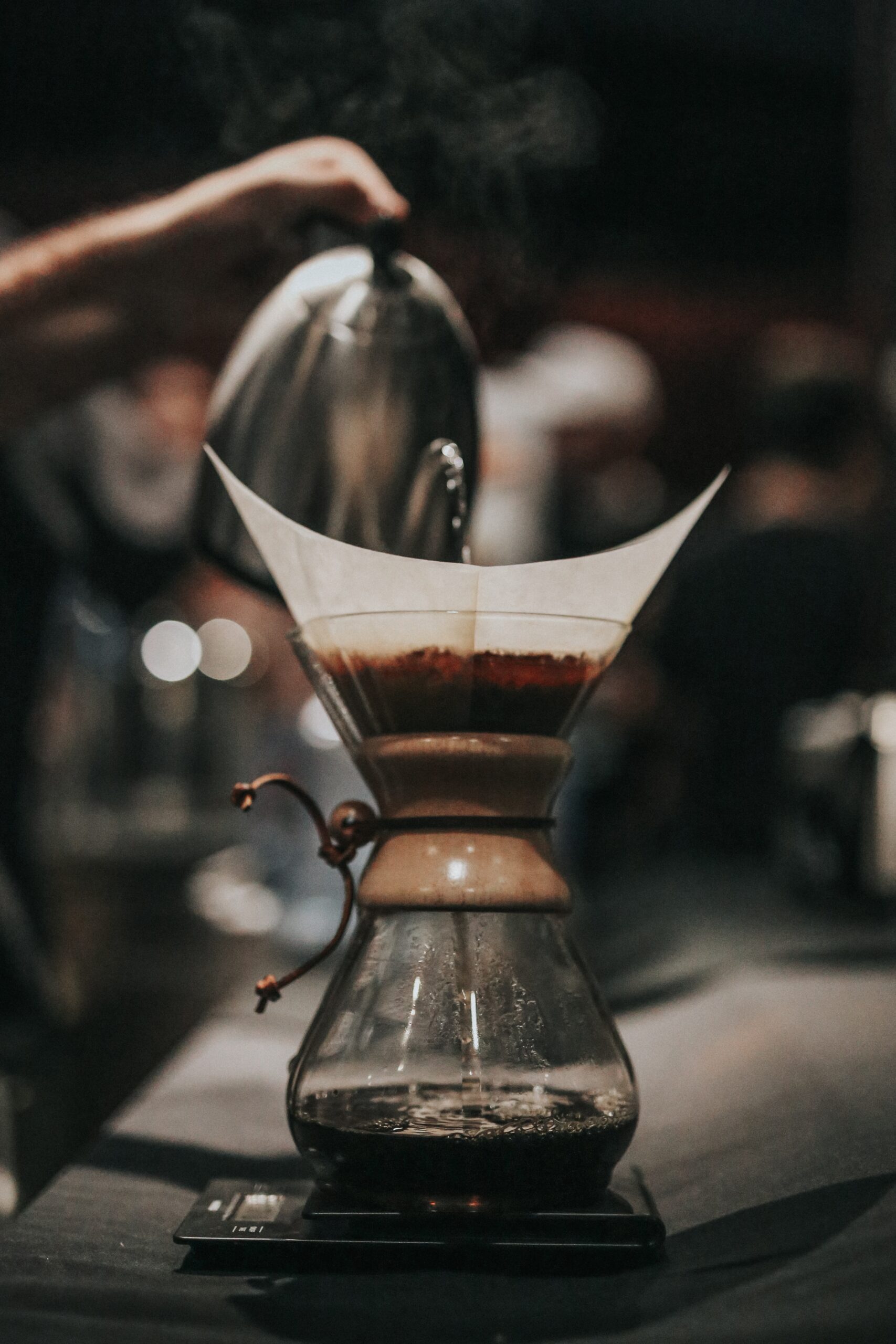Coffee lovers rejoice! If you’re following a low carb diet, you may be wondering if your beloved cup of joe is still a go-to option. Well, you’ll be thrilled to know that coffee can indeed be a part of your low carb lifestyle. Not only does it provide a much-needed caffeine boost to kickstart your day, but it also offers several health benefits. So, grab your favorite mug and read on to discover why coffee can happily coexist with your low carb diet.
What is a Low Carb Diet?
A low carb diet is a dietary approach that focuses on limiting the intake of carbohydrates, such as those found in grains, fruits, and sugars. The primary purpose of a low carb diet is to promote weight loss and improve metabolic health by reducing the body’s reliance on carbohydrates as a source of energy. Instead, this diet encourages the consumption of protein, healthy fats, and non-starchy vegetables to fuel the body, leading to a state of ketosis where fat is burned for energy.
Effects of Coffee on a Low Carb Diet
Benefits
Coffee consumption can have several benefits for individuals following a low carb diet. Firstly, coffee is a natural appetite suppressant, which can help curb cravings and reduce overall caloric intake. This can be particularly helpful for those trying to manage their weight.
Furthermore, coffee contains caffeine, a stimulant that can boost metabolism and increase fat burning. This can potentially aid in weight loss efforts when combined with a low carb diet and regular exercise.
Lastly, coffee is rich in antioxidants, which have been linked to various health benefits, including the reduction of inflammation and the prevention of chronic diseases such as heart disease and type 2 diabetes. These antioxidant properties can be especially beneficial for individuals following a low carb diet, as they often prioritize whole, nutrient-dense foods.
Drawbacks
While coffee can have numerous positive effects on a low carb diet, it is important to be aware of potential drawbacks. One significant drawback is the tendency for some individuals to add high-carbohydrate sweeteners and flavorings to their coffee, which can undermine the goals of a low carb diet. It is crucial to choose low or no-carb sweeteners such as stevia or erythritol and be mindful of the ingredients in flavored syrups to ensure they align with your low carb goals.
Additionally, excessive coffee consumption can lead to increased anxiety, jitteriness, and disrupted sleep patterns. It is essential to monitor your caffeine intake and be mindful of how your body reacts to ensure optimal health while following a low carb diet.

Choosing the Right Coffee for a Low Carb Diet
Instant Coffee vs. Brewed Coffee
When considering the type of coffee to consume on a low carb diet, both instant coffee and brewed coffee can be viable options. However, it is essential to read the labels and choose coffee without added sugars or artificial sweeteners. Instant coffee is a convenient choice that can be easily prepared, but be cautious of flavored varieties that may contain hidden carbohydrates.
Brewed coffee, made from ground coffee beans, provides a richer flavor and aroma. It offers the flexibility to control the brewing process and experiment with various brewing methods to suit personal preferences. Additionally, freshly ground coffee beans often contain a higher concentration of beneficial compounds and antioxidants compared to instant coffee.
Ultimately, the choice between instant coffee and brewed coffee comes down to personal preference and convenience. Just make sure to check the ingredients and choose options that align with your low carb goals.
Adding Sweeteners and Flavorings
When it comes to sweetening and flavoring your coffee on a low carb diet, it is crucial to opt for low or no-carb options. Natural sweeteners such as stevia, erythritol, or monk fruit extract can be excellent alternatives to traditional sugar. These sweeteners provide the desired sweetness without adding significant carbohydrates or calories.
Moreover, for flavoring, consider using unsweetened extracts such as vanilla, almond, or cinnamon. These extracts can add depth and complexity to your coffee without derailing your low carb diet efforts. Experimenting with different combinations can help you find a flavorful and satisfying coffee experience without compromising your dietary goals.
Effects of Caffeine on a Low Carb Diet
Impact on Insulin Levels
Caffeine consumption has been shown to have a modest impact on insulin sensitivity. Some studies suggest that caffeine can improve insulin sensitivity, potentially leading to better blood sugar control. This effect may be beneficial for individuals following a low carb diet, as they often aim to stabilize their blood sugar levels.
However, it is important to note that the impact of caffeine on insulin levels varies among individuals. It is always recommended to monitor your body’s response and consult with a healthcare professional if you have any concerns about your blood sugar management.
Impact on Ketosis
Ketosis is a metabolic state where the body primarily burns fat for energy instead of carbohydrates. While caffeine itself does not directly impact ketosis, it can affect the body’s overall metabolic rate, potentially leading to increased fat burning. This effect may be beneficial for individuals on a low carb diet, as it can enhance their efforts to achieve and maintain ketosis.
However, it is essential to note that excessive caffeine consumption can cause stress on the body, leading to increased cortisol production. Elevated cortisol levels can interfere with ketosis and hinder weight loss efforts. Therefore, moderation is key when consuming caffeinated beverages on a low carb diet.
Coffee and Hunger on a Low Carb Diet
Appetite Suppressant
Coffee, specifically the caffeine it contains, has been shown to act as a natural appetite suppressant. Caffeine can stimulate the release of hormones that reduce hunger, helping individuals on a low carb diet feel satisfied and avoid unnecessary snacking or overeating.
Additionally, the warm and comforting sensation of sipping on a hot cup of coffee can also provide psychological satisfaction and help curb cravings. This can be particularly valuable during periods of calorie restriction or when experiencing cravings for high-carb foods.
Increased Hunger
While coffee can suppress appetite for some individuals, it can have the opposite effect on others. Some people may experience increased hunger or cravings after consuming caffeine. This can vary depending on an individual’s caffeine tolerance, overall diet, and sensitivity to the effects of stimulants.
If you find that coffee increases your hunger levels, it may be beneficial to consume your coffee alongside a nutrient-dense, low carb meal or snack to ensure you are properly nourished and satisfied throughout the day.
Coffee and Weight Loss on a Low Carb Diet
Metabolism Boost
Coffee, particularly due to its caffeine content, has been shown to temporarily boost metabolism and increase the rate at which the body burns calories. This can potentially aid in weight loss efforts for individuals following a low carb diet.
However, it is important to note that any metabolic boost provided by coffee is typically modest and temporary. Long-term weight loss is still primarily achieved through a caloric deficit and a balanced, nutrient-dense diet.
Potential Weight Loss Plateau
While coffee can provide temporary benefits for weight loss on a low carb diet, some individuals may experience a weight loss plateau over time. This is a common occurrence where the body adapts to a lower calorie intake and slows down its metabolism.
In such cases, it may be beneficial to reassess your overall diet and exercise routine, rather than solely relying on coffee for weight loss. Incorporating other strategies such as strength training, varied workout routines, and adjusting macronutrient ratios can help overcome weight loss plateaus and promote continued progress.

Coffee and Blood Sugar on a Low Carb Diet
Stabilizing Blood Sugar
One of the main goals of a low carb diet is to stabilize blood sugar levels. Coffee, particularly black coffee without added sugars or artificial sweeteners, can be a suitable beverage choice to support this goal.
Coffee has been shown to have a minimal impact on blood sugar levels, making it a preferable option over sugary drinks or carbohydrate-rich beverages. By substituting high-carb beverages with black coffee, individuals on a low carb diet can avoid blood sugar spikes and maintain more stable energy levels throughout the day.
Potential Blood Sugar Spikes
Despite coffee’s generally minimal impact on blood sugar levels, it is important to consider any additions made to the beverage. Sweeteners, flavored syrups, or high-carb creamers can potentially cause blood sugar spikes and hinder the effectiveness of a low carb diet.
To ensure optimal blood sugar control, it is crucial to choose coffee options that align with your low carb goals and avoid excessive intake of high-carbohydrate additives.
Coffee and Nutrient Absorption on a Low Carb Diet
Interference with Nutrient Absorption
Coffee, particularly when consumed in large quantities, can interfere with the absorption of certain essential nutrients, including iron and calcium. Compounds in coffee, such as polyphenols and tannins, can bind to these nutrients and inhibit their absorption in the intestines.
This interference can be of concern for individuals on a low carb diet who may already have limited food choices and may rely on specific nutrient-rich foods. It is important to be mindful of coffee consumption alongside meals and consider enjoying coffee at least an hour before or after meals to minimize any potential nutrient absorption issues.
Beneficial Effects
Despite the potential interference with nutrient absorption, coffee itself contains beneficial compounds that can provide certain health benefits. Coffee is a significant source of antioxidants, including chlorogenic acid and caffeic acid, which have been linked to various positive effects, such as reducing inflammation and supporting brain health.
Therefore, enjoying moderate amounts of coffee alongside a balanced and nutrient-rich low carb diet can still provide certain beneficial effects while minimizing any potential drawbacks.

Coffee and Sleep on a Low Carb Diet
Impact on Sleep Quality
Coffee consumption, especially in the evening or close to bedtime, can disrupt sleep patterns and negatively impact sleep quality. Caffeine is a stimulant that can increase alertness and delay the onset of sleep.
For individuals following a low carb diet, it is crucial to prioritize adequate sleep as it plays a vital role in overall health and weight management. Therefore, it is recommended to consume coffee earlier in the day or opt for decaffeinated varieties later in the evening to avoid sleep disturbances.
Strategies for Minimizing Disruption
If you find it challenging to give up coffee, but still want to protect your sleep quality while on a low carb diet, there are some strategies you can employ. Firstly, consider gradually reducing your caffeine intake and transitioning to decaffeinated coffee or herbal teas in the afternoon and evening.
Additionally, developing a consistent sleep routine, creating a calming sleep environment, and practicing relaxation techniques before bed can help counteract the potential sleep disruption caused by coffee consumption.
Conclusion
In conclusion, coffee can be enjoyed as part of a low carb diet with certain considerations. It can provide several benefits, such as appetite suppression, a potential boost in metabolism, and the stabilization of blood sugar levels. However, it is important to choose coffee options that align with your low carb goals, avoid excessive consumption, and be mindful of any additives that may impact nutrient absorption or lead to blood sugar spikes. Furthermore, it is crucial to prioritize sleep and be aware of any potential disruptions caused by caffeine consumption. By understanding and moderating your coffee intake, you can enhance your low carb diet experience and potentially benefit from its numerous positive effects.



